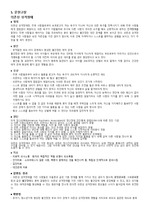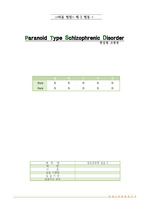

PARTNER
검증된 파트너 제휴사 자료
유아기 수면특성과 수면장애 및 정서적 안정감 간의 관계 (The Relationship between Sleep Characteristics and Sleep Disorders and Emotional Stability in Early Childhood)
17 페이지
최초등록일 2025.03.12
최종저작일
2022.11

-
서지정보
· 발행기관 : 한국아동교육학회
· 수록지 정보 : 아동교육 / 31권 / 4호 / 107 ~ 123페이지
· 저자명 : 김현경
초록
본 연구는 유아의 수면특성에 따른 수면장애와 정서적 안정감 간의 관계에 대해 알아봄으로써 유아기 바람직한 수면습관 형성에 도움을 주고자 연구되었다. 이를 위해 수도권에 거주하는 140명의 만 4∼5세 유아와 학부모 및 담임교사를 대상을 자료를 수집하여 연구하였다. 연구결과 첫째, 유아의 수면의 실태 중 잠자리에 드는 시간은 저녁 9~12시가 가장 많았고, 다음으로 저녁 7~9시가 많았으며 유아들의 하루 총 수면 시간은 8~10시간을 자는 유아가 가장 많았고, 유아들의 취침 전 주로 하는 활동으로는 TV 보기, 책보기 활동, 컴퓨터하기, 놀잇감 가지고 놀기, 이야기하기, 운동하기 순으로 나타났다. 둘째, 유아의 총 수면 시간에 따른 수면장애와 정서적 안정감의 상관관계는 통계적으로 유의하지 않은 것으로 나타났다. 셋째, 유아의 잠자리에 드는 시간에 따른 수면장애와 정서적 안정감 간의 관계에서 잠자리에 드는 시간이 수면장애와 정서적 안정감과 통계적으로 유의미하며, 정서적 안정감과 비교적 높은 상관관계를 보이는 것으로 나타났다. 넷째, 유아의 취침 전 활동 유형에 따른 수면장애와 정서적 안정감 간 관계는 통계적으로 유의하지 않은 것으로 나타났다. 이러한 결과는 잠자리에 드는 시간이 유아의 숙면에 영향을 미치고 나아가 정서적 안정감 형성에 상관성이 있음을 알 수 있다. 이에 연구결과의 시사점에 대하여 논의점에 대해 살펴보고 본 연구의 제한점을 바탕으로 후속 연구에 대한 제언하였다.영어초록
This study was studied to help develop desirable sleep habits in early childhood by examining the relationship between sleep disorders and emotional stability according to the sleep characteristics of infants. To this end, 140 children aged 4 to 5 living in the metropolitan area, parents, and homeroom teachers were studied by collecting data on the subjects. First, among the sleep conditions of infants, 9 p.m. to 12 p.m., 7 p.m. to 9 p.m., and the total sleep time of infants was 8 to 10 hours a day, and children's main activities were watching TV, reading books, playing with computers, talking, and exercising. Second, it was found that the correlation between sleep disorder and emotional stability according to the total sleep time of infants was not statistically significant. Third, in the relationship between sleep disorders and emotional stability according to the bedtime of infants, bed time was statistically significant with sleep disorders and emotional stability, and showed a relatively high correlation with emotional stability. Fourth, it was found that the relationship between sleep disorder and emotional stability according to the type of activity before bedtime of infants was not statistically significant. These results show that the time to go to bed affects the infant's deep sleep and further correlates with the formation of emotional stability. Therefore, the implications of the research results were examined, and subsequent studies were suggested based on the limitations of this study.참고자료
· 없음태그
-
자주묻는질문의 답변을 확인해 주세요

꼭 알아주세요
-
자료의 정보 및 내용의 진실성에 대하여 해피캠퍼스는 보증하지 않으며, 해당 정보 및 게시물 저작권과 기타 법적 책임은 자료 등록자에게 있습니다.
자료 및 게시물 내용의 불법적 이용, 무단 전재∙배포는 금지되어 있습니다.
저작권침해, 명예훼손 등 분쟁 요소 발견 시 고객센터의 저작권침해 신고센터를 이용해 주시기 바랍니다. -
해피캠퍼스는 구매자와 판매자 모두가 만족하는 서비스가 되도록 노력하고 있으며, 아래의 4가지 자료환불 조건을 꼭 확인해주시기 바랍니다.
파일오류 중복자료 저작권 없음 설명과 실제 내용 불일치 파일의 다운로드가 제대로 되지 않거나 파일형식에 맞는 프로그램으로 정상 작동하지 않는 경우 다른 자료와 70% 이상 내용이 일치하는 경우 (중복임을 확인할 수 있는 근거 필요함) 인터넷의 다른 사이트, 연구기관, 학교, 서적 등의 자료를 도용한 경우 자료의 설명과 실제 자료의 내용이 일치하지 않는 경우
찾으시던 자료가 아닌가요?
지금 보는 자료와 연관되어 있어요!
문서 초안을 생성해주는 EasyAI



